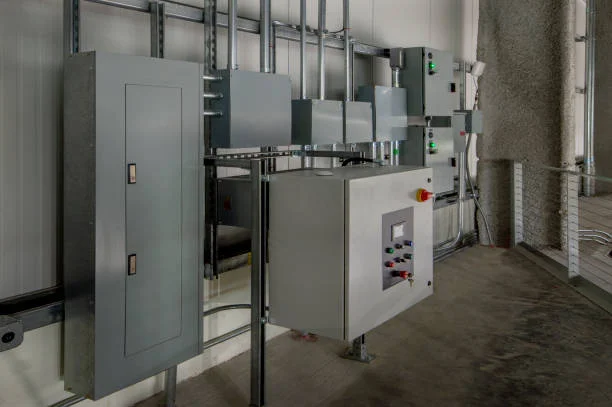In the ever-evolving landscape of process industries and power plants, the role of control systems is paramount. Centralized controllers, often referred to as Distributed Control Systems (DCS), play a pivotal role in ensuring the seamless and efficient operation of complex production processes across various sectors, from power plants, chemical refineries, and manufacturing facilities.
The Foundation of DCS
At its core, a Distributed Control System (DCS) is an automation system that oversees control functions and processes across a vast industrial landscape. Unlike traditional, centralized controllers, DCS architecture is characterized by its distributed nature. This means that control elements, such as field devices, input/output (I/O) modules, and local control units, are scattered throughout the production plant. This distribution of control functions allows for enhanced efficiency, reliability, and flexibility in managing complex control applications.
Key Components of DCS
-
1. Field Devices: These are the sensory and actuation components that collect data from the physical world. They provide essential information to the DCS for control processing.
-
2. Local Control Units: Distributed throughout the plant, these units are responsible for local control functions, helping to regulate various processes.
-
3. Control Functions: DCS systems execute a diverse array of control functions, ranging from basic logic to complex algorithms that optimize production processes.
-
4. Centralized Controllers: While DCS systems are inherently distributed, they often include centralized controllers that oversee the broader control functions.
Benefits of Distributed Control Systems
-
1. Enhanced Reliability: DCS systems offer a high degree of redundancy and fault tolerance, reducing the risk of downtime.
-
2. Scalability: DCS architectures can be easily scaled to meet the evolving needs of process industries.
-
3. Improved Process Automation: DCS systems excel in process automation, simplifying complex production processes.
-
4. Efficiency: These systems optimize control processing, ensuring energy efficiency and cost-effectiveness.
-
5. Flexibility: DCS systems are highly adaptable and can be tailored to meet the specific requirements of each industry.
Ashmit Engineering's Tailored DCS Solutions
Ashmit Engineering offers tailored DCS solutions that are not only scalable, flexible, reliable, and secure but also designed to meet the unique needs of diverse industries. Our expertise and experience in DCS design and engineering ensure that your control system is precisely tailored to your specific requirements. We excel in installation and commissioning, making sure your DCS system is up and running quickly and efficiently.
In addition to our products, we provide comprehensive support, including training and assistance, to help you harness the full potential of your DCS system. We understand the importance of DCS in improving industrial processes and offer a range of DCS products and services, custom-fit for various industries.
If you are looking to enhance the performance, reliability, and security of your industrial processes, Ashmit Engineering's tailored DCS solutions are your answer. Contact us today to discuss your unique needs and find a customized solution that will unlock operational excellence for your business.
